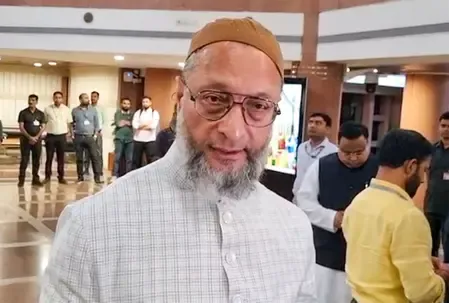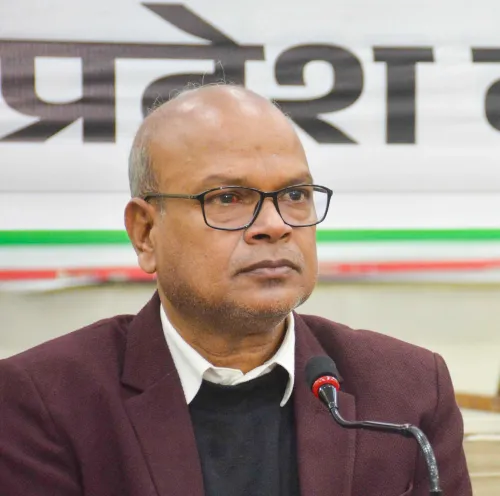Will the Maharashtra Government Take Action Against ATS Officials?

Synopsis
Key Takeaways
- The Bombay High Court acquitted 12 men wrongfully convicted in the 2006 Mumbai train blasts case.
- Asaduddin Owaisi questioned the accountability of ATS officials involved in the investigation.
- The emotional impact on families of the accused is profound and ongoing.
- Criticism of the police's approach to terrorism cases highlights systemic issues.
- The case underscores the need for judicial and police reforms.
Hyderabad, July 21 (NationPress) Following the recent acquittal of 12 individuals in the 2006 Mumbai train blasts case by the Bombay High Court, AIMIM president Asaduddin Owaisi raised a critical question regarding whether the Maharashtra government will hold Anti-Terrorism Squad (ATS) officials accountable for their investigation. Owaisi took to the platform ‘X’ to express his concern that these 12 Muslim men spent 18 years in prison for a crime they did not commit, wasting their prime years while over 180 families still grieve the loss of their loved ones and those injured. He questioned, “Will the Government take action against the officers of Maharashtra ATS who were involved in this investigation?”
He emphasized the tragedy of innocent lives being imprisoned, stating that even after their release, the possibility of rebuilding their lives is virtually nonexistent. “These accused have been incarcerated for 17 years without stepping foot outside even once. Most of their significant life moments have been lost,” Owaisi lamented.
Nineteen years after the tragic blasts that claimed 189 lives and left over 800 injured, the Bombay High Court acquitted all 12 individuals previously convicted by a lower court in this series of bombings. A trial court had convicted these 12 in 2015, handing down death sentences to five and life imprisonment to the others.
The high court, led by Justice Anil Kilor and Justice Shyam Chandak, found that the prosecution had “utterly failed” to substantiate the charges against the accused.
Owaisi criticized the police's handling of terror-related cases, stating that in instances of public outcry, the police typically presume guilt from the outset. He noted that the media coverage often influences public perception of guilt. “Investigating agencies have repeatedly let us down in many such terror cases,” he stated.
He also called attention to the political context, reminding that the parties in power in Maharashtra in 2006 share responsibility for ignoring reports of torture and for the premature judgments made by so-called nationalists.
Referring to Mohammed Majid, one of the acquitted men, Owaisi shared the painful story of Majid's wife, who passed away without having a final conversation with him. He highlighted the emotional toll on families, noting that the father of Faisal and Muzammil, two of the acquitted brothers, suffered a heart attack upon hearing the sentences imposed on his sons, while their mother passed away in 2023.










